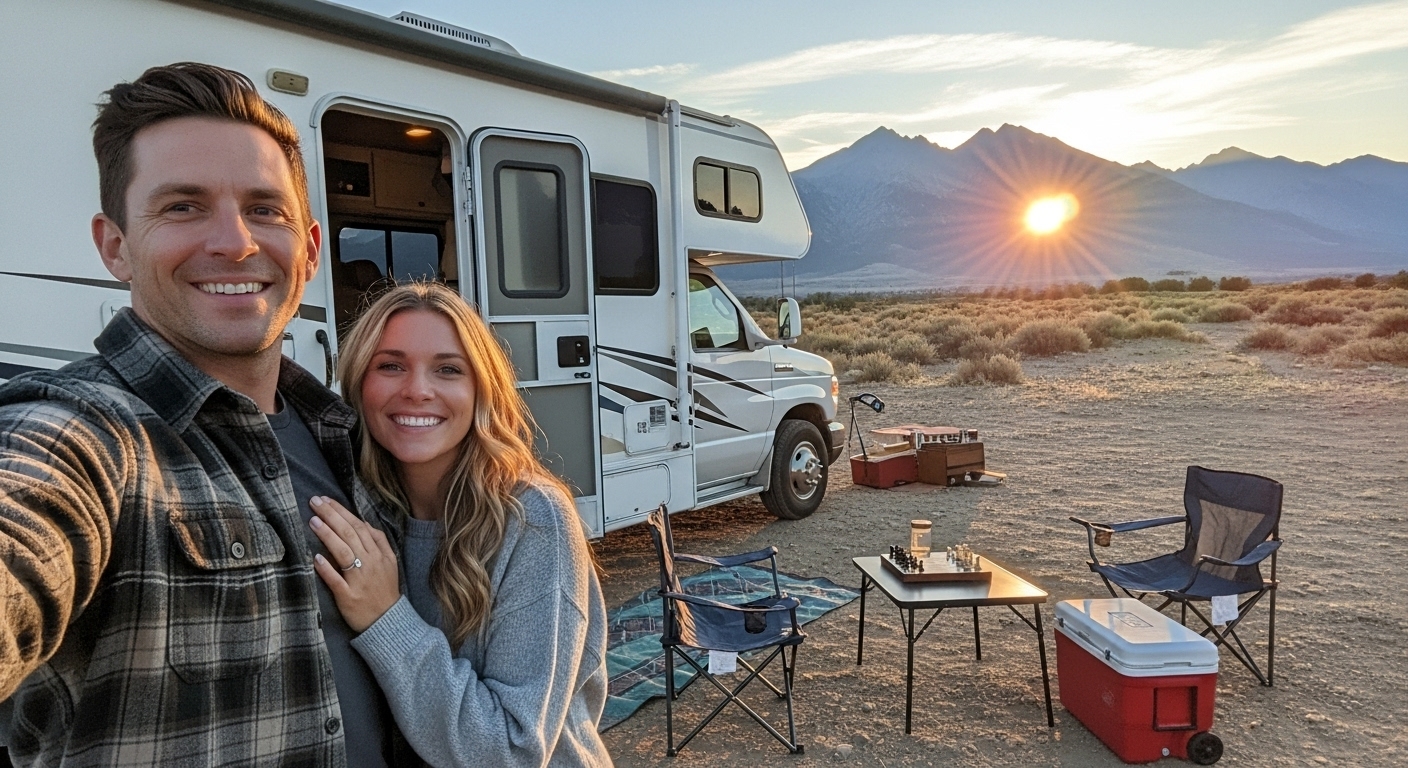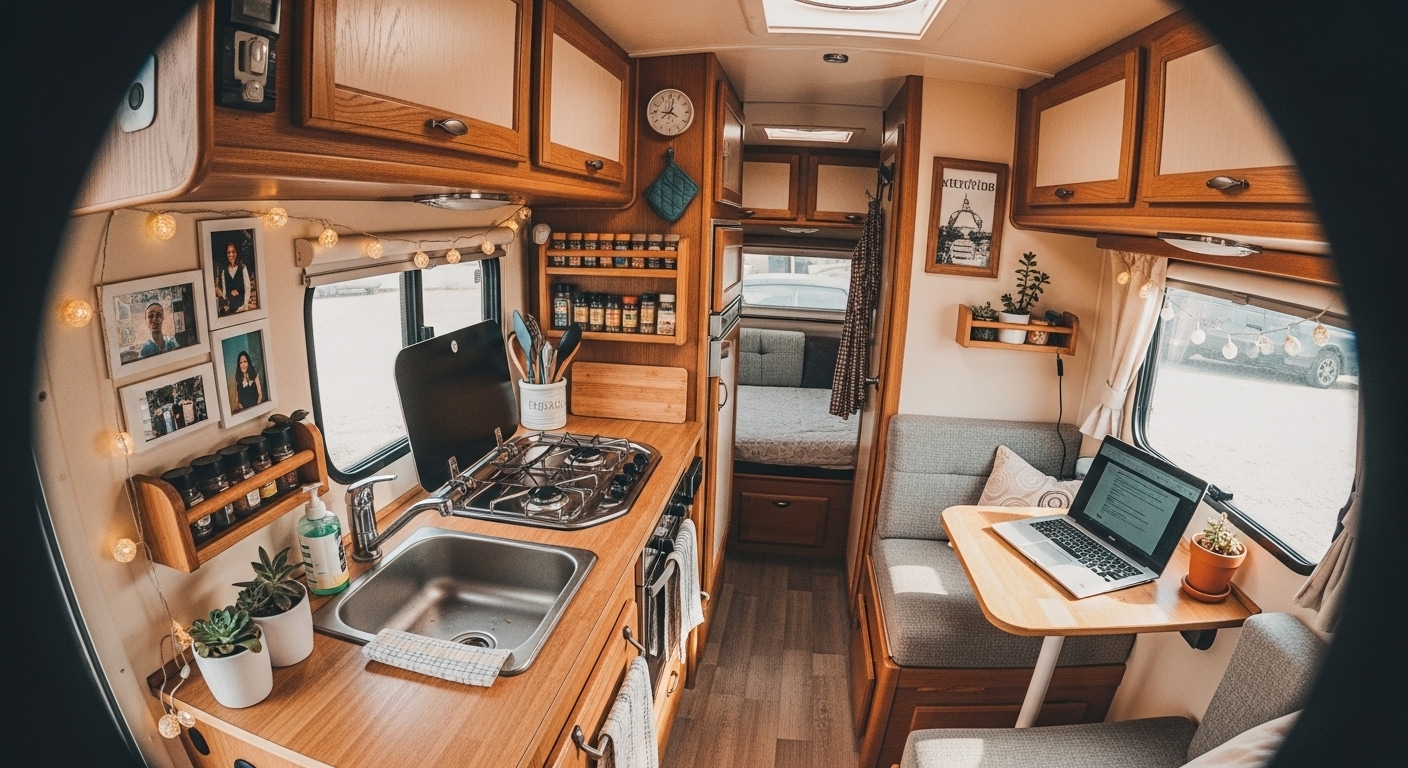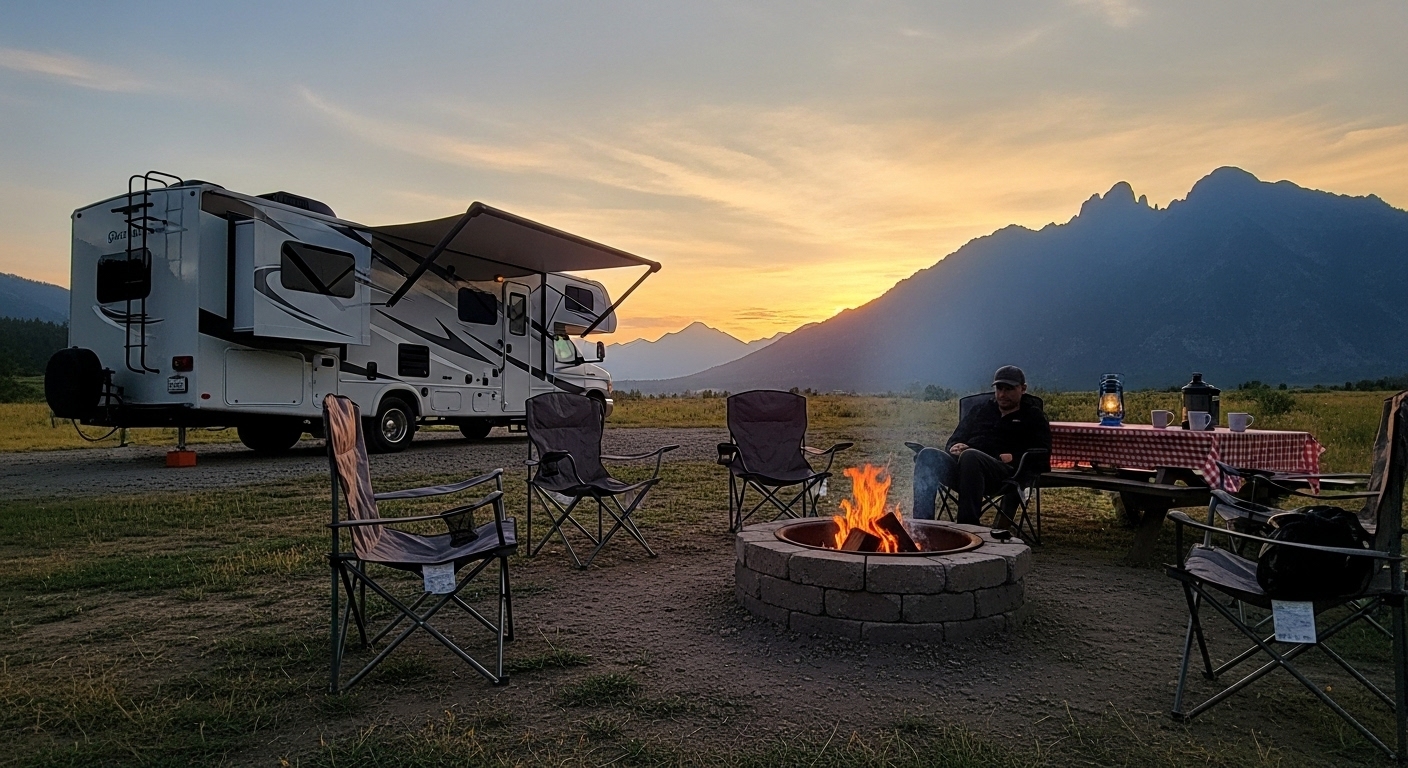
Our First Year of Full-Time RV Living: Lessons Learned
One year ago, we sold our house, packed our lives into a 32-foot travel trailer, and hit the road for full-time RV living. It's been an incredible journey filled with breathtaking sunsets, unexpected challenges, and countless lessons. Here's everything we wish we'd known before starting our adventure.
The First Month: Reality Sets In
Our romanticized vision of RV life met reality quickly. The first month involved numerous adjustments—learning our RV's systems, establishing routines, and dealing with the mental shift of not having a permanent home. We spent hours watching YouTube tutorials for basic tasks like dumping tanks and leveling properly.
The biggest surprise? How much time maintenance consumes. Between driving, setting up camp, doing laundry, and fixing minor issues, we had less time for exploration than expected. We learned to embrace slow travel, staying 5-7 days minimum in each location.

Biggest Challenges We Faced
Space Adjustment
Downsizing from 2,000 square feet to 250 was harder than anticipated. We went through three rounds of decluttering before finding our sustainable minimum. Pro tip: if you haven't used something in two months, you probably don't need it.
Relationship Testing
Living in close quarters 24/7 tested our relationship. We established "alone time" rules—morning coffee solo, afternoon walks separately, and respecting when one person needs the bedroom alone. Communication became crucial.
Internet Struggles
Working remotely required reliable internet, which proved challenging. We invested $1,200 in a cellular booster and multiple carrier plans. Even then, we occasionally Ubered to coffee shops for important video calls.
Surprise Repairs
Our three-year-old trailer needed $2,800 in unexpected repairs the first six months—new tires, water heater replacement, and slide mechanism repair. Budget significantly more for maintenance than you think necessary.

What We Learned About Budgeting
Our initial budget of $2,500 monthly proved unrealistic. We actually spent closer to $3,200 monthly, breaking down approximately as:
- Campgrounds: $800 (mixing paid sites and boondocking)
- Fuel: $400 (we travel more than planned)
- Food: $500 (similar to house living)
- Insurance & Phone: $350
- Maintenance & Repairs: $400 (higher first year)
- Entertainment & Misc: $750
We significantly underestimated fuel and maintenance costs. However, eliminating mortgage, utilities, and property taxes still resulted in overall savings.
Best Decisions We Made
Investing in Solar
Our $2,000 solar setup (400 watts) paid for itself in six months through free camping. We spent weeks boondocking in gorgeous locations without generator noise or hookup fees.
Joining Communities
RV forums and Facebook groups provided invaluable advice, troubleshooting help, and friendship. We met up with online friends in real life, creating deeper connections than we had in traditional housing.
Establishing Routines
Morning coffee outside, weekly planning sessions, and Friday date nights maintained normalcy amid constant change. Routines anchored us emotionally during challenging times.
Learning Basic Repairs
YouTube University taught us to fix minor issues ourselves—replacing faucets, resealing roof vents, troubleshooting electrical problems. DIY skills saved thousands of dollars.
Unexpected Benefits
Beyond financial savings and travel opportunities, we discovered surprising advantages:
- Deeper Connections: Campground conversations led to genuine friendships. RVers are incredibly welcoming and helpful.
- Better Health: Constant outdoor activity and walking improved fitness significantly.
- Simplified Life: Fewer possessions meant less stress. We stopped shopping unnecessarily.
- Appreciation for Small Luxuries: Hot showers and reliable WiFi became genuine pleasures rather than expectations.
- Quality Time: More time together strengthened our relationship despite initial challenges.
Mistakes We Made
Overpacking
We brought way too much stuff. Three months in, we shipped boxes of clothes and kitchen gadgets to storage. Start minimal—you can always acquire needed items.
Rushing Travel
Initially, we moved every 2-3 days trying to "see everything." This exhausted us physically and financially. Slowing down improved both quality of life and budget.
Skimping on Maintenance
Delaying a $200 roof inspection resulted in $1,500 water damage repair. Preventive maintenance is always cheaper than emergency repairs.
Not Testing Equipment Beforehand
We discovered our generator didn't work properly our first night boondocking. Test everything in your driveway before departing—water system, appliances, slide-outs, everything.
Advice for Aspiring Full-Timers
Start with a Trial Run
Rent an RV for 2-4 weeks before committing. Live in it full-time, not vacation mode. Do laundry, work remotely, cook meals, and deal with weather challenges.
Build Your Emergency Fund
Have 6+ months expenses saved. Unexpected repairs, medical issues, or needing to pause travel happens. Financial cushion prevents forced decisions.
Choose the Right RV Size
Bigger isn't always better. Consider where you want to camp—national parks often have 30-foot limits. Balance living space with maneuverability.
Connect Before You Go
Join RV groups online, attend rallies, and connect with full-timers. Their experience saves you countless headaches and costly mistakes.
Embrace Flexibility
Plans will change. Campgrounds will be full, weather won't cooperate, and mechanical issues arise. Frustration or adventure—your attitude determines which.
Would We Do It Again?
Absolutely. Despite challenges, this year exceeded our wildest expectations. We've witnessed stunning sunrises over the Grand Canyon, listened to elk bugling in Yellowstone, and watched dolphins play beside Florida beaches. We've simplified our lives, strengthened our relationship, and learned self-reliance.
RV life isn't perfect. It's hard work, expensive in unexpected ways, and sometimes uncomfortable. But it's also incredibly rewarding, adventurous, and freeing. We've grown more in this year than the previous decade combined.
Our advice? If you're dreaming of RV life, stop dreaming and start planning. Research thoroughly, budget conservatively, and prepare mentally for challenges. But don't wait for the "perfect" time—it doesn't exist. Take the leap. The open road is calling, and the adventure of a lifetime awaits. One year in, we can't imagine life any other way.